What are AI Agents? Exploring Their Role in Modern Technology

AI agents are like those smart digital helpers you hear about. They’re not just for sci-fi movies anymore; they’re real and changing how stuff gets done in tech today. These agents can think and act on their own, doing things like answering customer questions or sorting through tons of data. They’re basically the brains behind making things run smoother and faster, whether it’s in a hospital, a bank, or even your smartphone. As we keep moving towards a future filled with AI, these agents are becoming super important for businesses that want to stay ahead of the game.
Key Takeaways
- AI agents are software programs that can act and make decisions independently.
- They are used in various fields like customer service, healthcare, and finance.
- AI agents help automate tasks, improving efficiency and accuracy.
- They rely on technologies like machine learning and natural language processing.
- Ethical considerations, such as privacy and bias, are crucial when deploying AI agents.
Understanding AI Agents
Definition of AI Agents
AI agents are intelligent software systems designed to interact with their environment, collect relevant data, and autonomously perform tasks to fulfill user objectives. These agents are not just about following a set of instructions; they can make decisions, learn from data, and adapt to new situations. This adaptability makes them incredibly versatile tools in various industries. Whether it’s a virtual assistant helping you manage your day or a complex system analyzing financial trends, AI agents are transforming how we approach tasks.
Types of AI Agents
AI agents come in various forms, each with its unique capabilities and applications:
- Simple Reflex Agents: These agents operate on a condition-action rule, responding directly to stimuli without internal state consideration. They’re straightforward but limited in scope.
- Model-Based Agents: Unlike simple reflex agents, these agents maintain an internal state, using it to handle more complex tasks by considering historical data.
- Goal-Based Agents: These agents act to achieve specific objectives, using goal information to guide their actions and decisions.
- Utility-Based Agents: They evaluate the best course of action based on a utility function, aiming to maximize a specific outcome.
- Learning Agents: These agents improve their performance over time by learning from past experiences, adapting to new environments and challenges.
Key Characteristics
AI agents possess several defining features that enable them to function effectively:
- Perception: They gather data from their environment, much like our senses, to inform their actions.
- Decision-Making: Using algorithms, AI agents make informed decisions based on the data they collect.
- Learning: Many AI agents can learn from past interactions, improving their performance and adapting to new scenarios.
- Autonomy: They operate independently, requiring minimal human intervention to perform tasks.
AI agents are reshaping the landscape of technology, offering solutions that are not only efficient but also adaptable to the ever-changing needs of modern life. Their ability to learn and make decisions autonomously is setting new standards in automation and intelligence.
Applications of AI Agents
AI Agents in Customer Service
AI agents have become a staple in customer service, especially with the rise of chatbots and virtual assistants. These digital helpers are transforming how businesses interact with their customers. They can handle a variety of tasks, from answering frequently asked questions to managing complex inquiries. For instance, in e-commerce, AI chatbots can assist with order tracking, provide product recommendations, and even process returns, all while reducing wait times and improving customer satisfaction. The use of natural language processing allows these agents to understand and respond to customer queries effectively, offering a personalized experience.
AI Agents in Healthcare
In the healthcare sector, AI agents are making significant strides. They’re used for diagnosing diseases, managing patient care, and streamlining administrative tasks. AI agents can analyze medical images, lab results, and patient histories to detect conditions early, recommend personalized treatment plans, and automate scheduling and record updates. This not only enhances the accuracy and speed of diagnoses but also allows healthcare professionals to focus more on patient care rather than paperwork.
AI Agents in Finance
AI agents are also pivotal in the finance industry. They help with tasks like fraud detection, loan approval processes, and personalized financial advice. By analyzing large datasets, these agents can identify unusual patterns that might indicate fraudulent activity or assess creditworthiness for loan applications. Moreover, they provide clients with tailored financial advice based on their spending habits and financial goals. This use of AI in finance not only boosts efficiency but also enhances security and customer trust.
Technological Foundations of AI Agents
Machine Learning Algorithms
AI agents rely heavily on machine learning algorithms to function effectively. These algorithms enable agents to learn from data, identify patterns, and make informed decisions. Machine learning is like the brain of AI agents, allowing them to adapt and improve over time. There are several types of machine learning methods:
- Supervised Learning: Involves training the agent with labeled data, helping it to predict outcomes based on input variables.
- Unsupervised Learning: The agent identifies hidden patterns in data without pre-existing labels.
- Reinforcement Learning: The agent learns by interacting with its environment, receiving feedback, and adjusting its actions to maximize rewards.
These learning techniques empower AI agents to handle complex tasks, from predicting market trends to personalizing user experiences.
Natural Language Processing
Natural Language Processing (NLP) is a critical component of AI agents, especially those designed to interact with humans. NLP allows agents to understand, interpret, and respond to human language in a meaningful way. This technology is what makes virtual assistants like Siri and Alexa capable of understanding your requests and providing relevant responses. Key aspects of NLP include:
- Text Analysis: Breaking down and analyzing text to understand its meaning.
- Speech Recognition: Converting spoken language into text for processing.
- Sentiment Analysis: Determining the emotional tone behind a series of words.
With NLP, AI agents can engage in conversations, answer questions, and even detect emotions, making them invaluable in customer service and support roles.
Computer Vision
Computer vision is another cornerstone technology for AI agents, enabling them to "see" and interpret visual information from the world. This ability is crucial for applications like autonomous vehicles, facial recognition, and quality inspection in manufacturing. Computer vision involves:
- Image Recognition: Identifying objects, people, or features in an image.
- Video Analysis: Understanding and processing information from moving images.
- 3D Vision: Interpreting depth and spatial relationships in visual data.
By integrating computer vision, AI agents can perform tasks that require visual perception, such as navigating environments, monitoring security footage, or enhancing augmented reality experiences.
AI agents are not just about crunching numbers; they’re about understanding and interacting with the world. Whether it’s through sensing their environment or learning from it, these technologies form the backbone of how AI agents operate. As these technologies advance, the capabilities of AI agents will continue to expand, opening new possibilities in various fields.
Ethical Considerations in AI Agents
Bias and Fairness
AI agents are only as good as the data they are trained on. If the data is biased, the AI will likely reflect those biases in its decisions. This can lead to unfair treatment of individuals or groups, perpetuating existing inequalities. For example, a hiring AI agent might favor certain demographics if trained on biased data. It’s crucial to use unbiased, high-quality data and regularly audit AI systems to ensure fairness.
Privacy Concerns
AI agents often handle sensitive data, raising significant privacy concerns. The risk of data breaches and misuse is high, especially if the AI systems are not adequately secured. For instance, a chatbot collecting customer data could be exploited by hackers, leading to a data breach. Implementing robust security measures, such as encryption and access controls, is essential to protect sensitive information.
Accountability
Determining who is responsible for the actions of an AI agent can be challenging. This is particularly problematic when AI systems make decisions that have significant consequences, like in healthcare or criminal justice. The autonomous nature of AI agents presents ethical dilemmas regarding decision-making and accountability. Organizations must establish clear accountability frameworks to address these issues, ensuring that there is a human overseer responsible for the AI’s actions.
The rapid advancement of AI technology brings with it a host of ethical challenges. Addressing these issues head-on is not just about compliance, but about building trust and ensuring the responsible use of AI in society.
Organizations can mitigate these challenges by prioritizing transparency, involving human oversight in AI decision-making, and staying informed about evolving regulations.
Future Trends in AI Agents

Advancements in AI Technology
AI agents are evolving rapidly, with technology pushing boundaries every day. One major trend is the shift towards enhanced autonomy and collaboration. These agents are not just executing tasks but are now capable of handling complex, multi-step workflows. For instance, in construction, AI agents are coordinating with suppliers and teams to ensure that project deadlines are met.
Integration with IoT
The integration of AI agents with IoT devices is another exciting trend. This combination allows for real-time data analysis at the edge, leading to quicker and more efficient responses. Imagine smart home systems where AI agents control appliances and security using localized sensor data.
Impact on Employment
AI agents are transforming the workplace, and this shift is bound to impact employment. While some fear job losses, others see AI agents as collaborators that can take over mundane tasks, allowing humans to focus on more creative and strategic work. In the coming decade, AI is expected to shift from enhancing human capabilities to executing tasks autonomously, streamlining workflows and increasing efficiency.
The future holds a collaborative landscape where AI agents work alongside humans, tackling challenges that were once unimaginable. Organizations must embrace this shift to lead the charge into a more innovative future.
Challenges Facing AI Agents
Technical Limitations
AI agents, while powerful, often hit roadblocks due to technical limitations. These can include difficulties in processing complex human language or understanding nuanced contexts. Imagine a customer service bot that can’t grasp sarcasm—leading to some pretty awkward interactions. These limitations can hinder effective communication and decision-making.
Regulatory Hurdles
Navigating the regulatory landscape is another significant challenge. Laws and guidelines surrounding AI are still evolving, and this creates a gray area for businesses. Who’s responsible if an AI system makes a mistake? This lack of clarity can make companies hesitant to fully embrace AI technologies.
Public Perception
Public trust in AI agents is not a given. Many people are wary of automation and its implications. Concerns about job loss, privacy, and ethical use of AI are widespread. Companies need to address these worries head-on to build confidence in their AI solutions.
AI agents hold incredible potential to reshape industries, but the path is fraught with challenges. Addressing these issues requires a balanced approach that considers both technological advancements and societal impacts.
- Data Quality and Bias: Poor data quality can lead to biased AI decisions, affecting fairness and accuracy.
- Integration Complexities: Merging AI with existing systems can be costly and technically challenging.
- Overreliance on Automation: Too much dependence on AI can reduce human oversight, leading to errors.
Organizations often struggle with the technology infrastructure needed to deploy AI agents effectively, despite hefty investments. Addressing these challenges is crucial for harnessing the full potential of AI.
AI Agents and Human Interaction

Enhancing User Experience
AI agents are changing the way we interact with technology by making things feel more personal and intuitive. They learn from every interaction, tailoring responses and actions to fit individual needs. This means that whether you’re dealing with a virtual assistant or an automated customer service agent, the experience feels more like talking to a person who knows you. AI agents can remember past interactions, anticipate needs, and even suggest solutions before problems arise.
Collaborative AI
In many workplaces, AI agents are becoming team players. They’re not just tools anymore; they’re partners that help humans tackle complex tasks. Imagine a scenario where an AI agent manages routine data analysis, freeing up human team members to focus on strategic planning and creative problem-solving. This kind of agentic AI enables human workers to concentrate on tasks that require emotional intelligence and nuanced decision-making, enhancing overall productivity.
Trust in AI Systems
Building trust in AI systems is crucial for their acceptance and effectiveness. People need to feel confident that these agents are reliable and secure. Transparency in how AI agents make decisions is key. Users should understand why an AI agent suggests a particular action or decision. This transparency helps in building trust, ensuring that interactions with AI systems are smooth and effective. Additionally, ongoing improvements in AI technology aim to make these interactions safer and more private, addressing concerns about data security and ethical use.
As AI agents become more integrated into our daily lives, the focus on enhancing user experience, fostering collaboration, and building trust will define their success. The future of human-AI interaction is promising, with potential for more personalized and efficient engagements.
Wrapping Up: The Impact of AI Agents
So, there you have it. AI agents are like the unsung heroes of our tech world, quietly transforming how things get done. They’re not just about fancy algorithms or sci-fi dreams anymore. These digital helpers are already making waves in everything from customer service to healthcare. Sure, there are challenges, like figuring out how to keep data safe and making sure these agents play nice with humans. But the potential? It’s huge. As we keep pushing forward, AI agents are going to be right there with us, helping to shape a future that’s smarter and more efficient. It’s an exciting time to be around, watching this tech evolve and seeing where it takes us next.
Frequently Asked Questions
What are AI agents?
AI agents are smart computer programs that can make decisions and complete tasks on their own. They help in things like answering questions, sorting data, and even driving cars.
How do AI agents learn?
AI agents learn by looking at lots of information and spotting patterns. They use this to get better at their tasks over time, much like how people learn from experience.
Where are AI agents used?
AI agents are used in many places like customer service, healthcare, and finance. They help in answering customer questions, diagnosing illnesses, and managing money.
Are AI agents safe to use?
Generally, AI agents are safe, but they need to be used responsibly. It’s important to make sure they don’t have any bias and that they respect people’s privacy.
Can AI agents replace human jobs?
AI agents can do some tasks that humans do, but they also create new jobs. They help with tasks that are repetitive, so people can focus on more creative work.
What is the future of AI agents?
The future of AI agents is exciting! They will become even better at helping in different fields, and they might work alongside humans more closely to solve big problems.

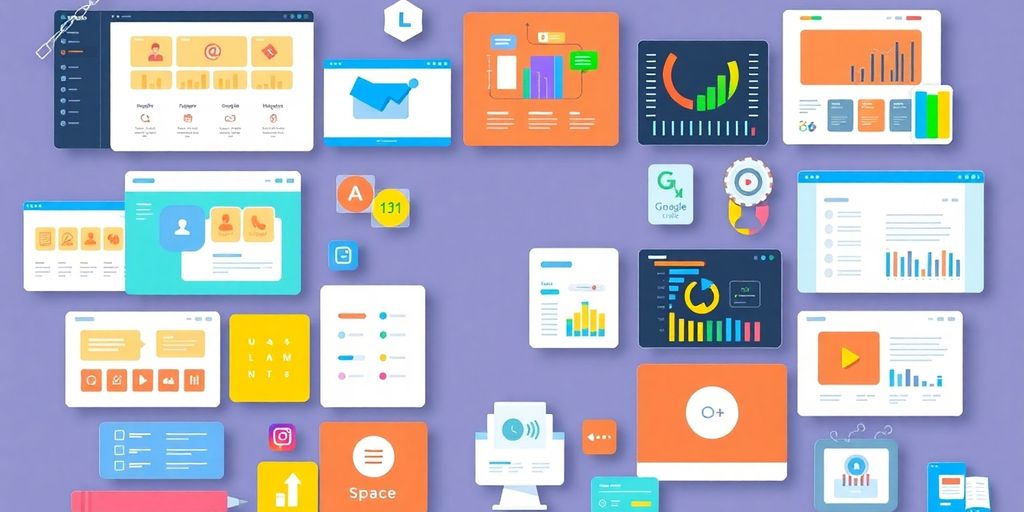
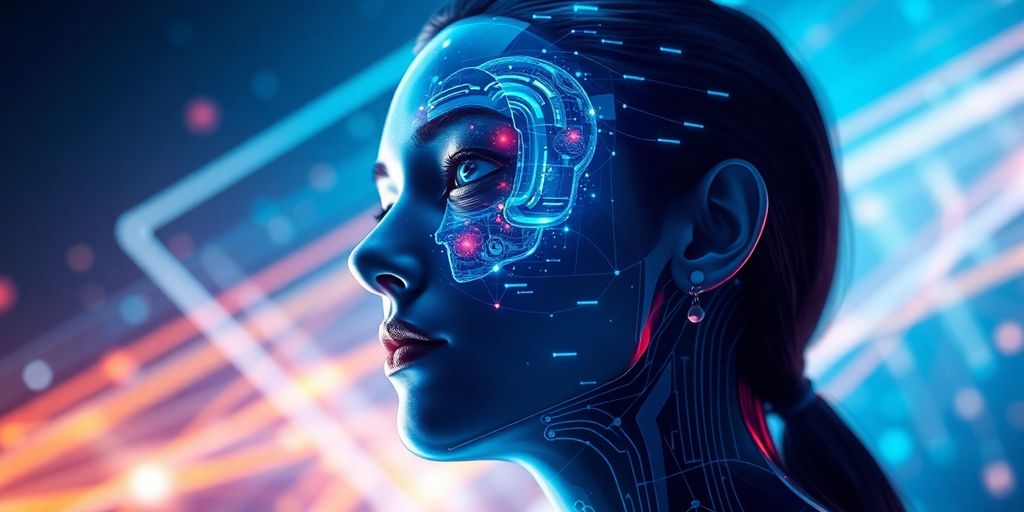

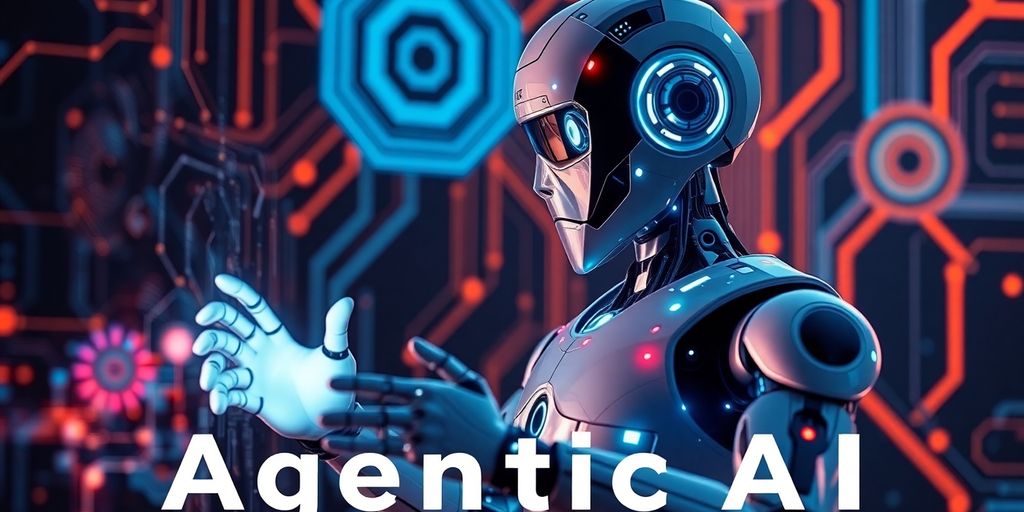
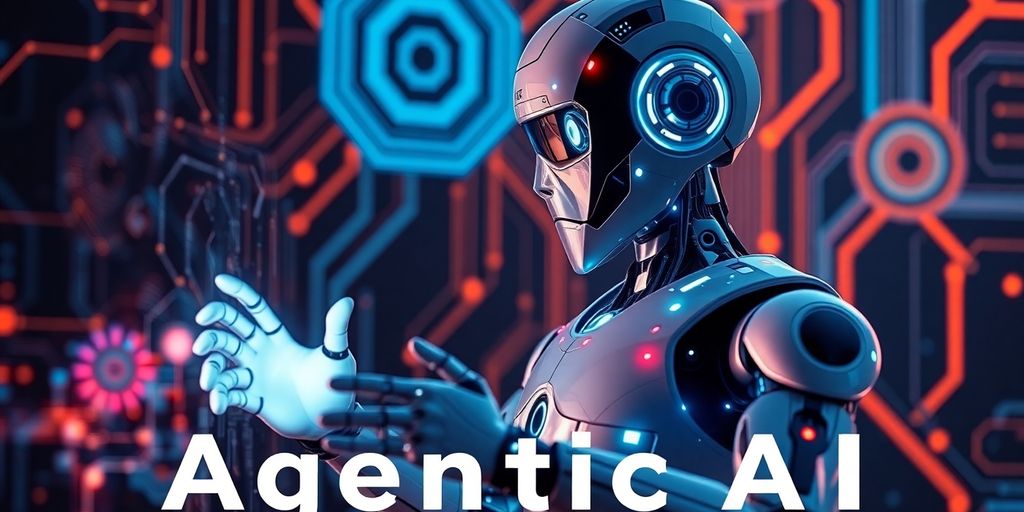
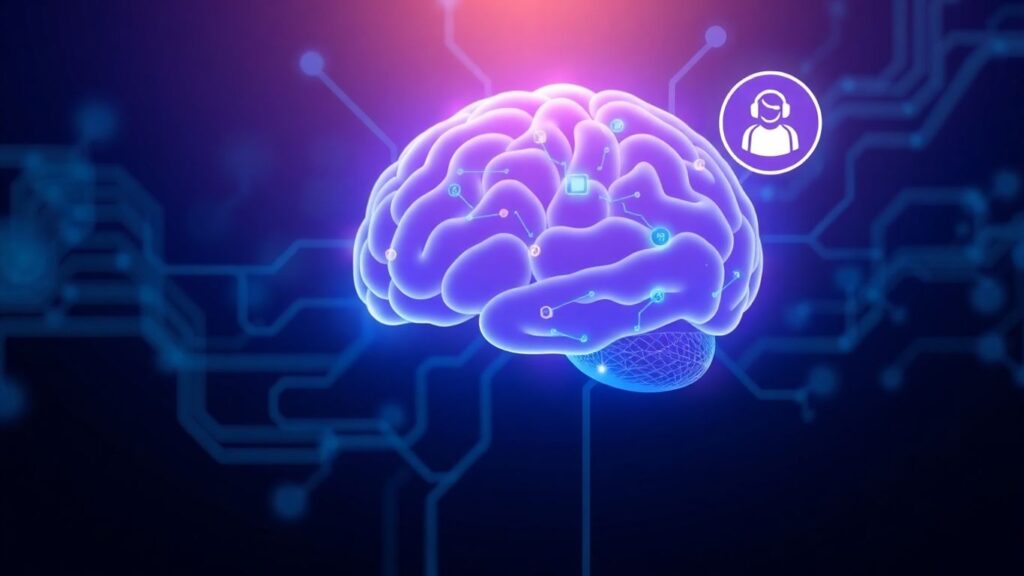

Responses